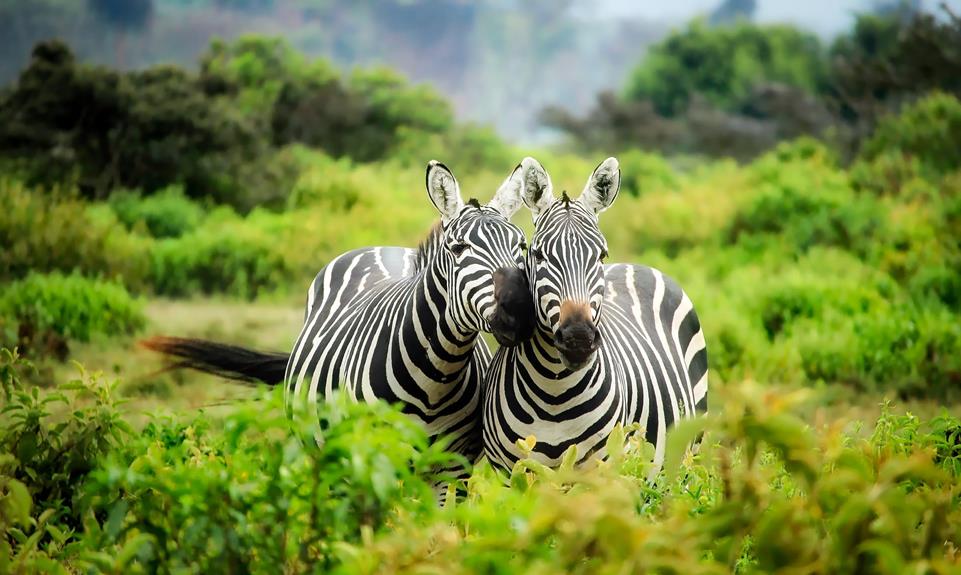I know you may be wondering if effective nature conservation in Algarve's natural parks is truly possible. Well, let me assure you that it is!
By working together, we can make a significant difference in preserving the beauty and biodiversity of this stunning region. Collaboration between conservation organizations, the Portuguese government, and the local community is key.
Through projects like Renature Monchique, TerraSeixe, Operation Green Mountain, and the Iberian Lynx conservation project near Monchique, we are actively protecting and restoring habitats for wildlife. Ongoing management and continuous investment are essential to safeguard sensitive ecosystems and prevent irreversible damage.
Additionally, initiatives like First Nature provide visitors with information and education, empowering them to support conservation efforts.
Together, we can ensure a sustainable future for Algarve's natural parks.
Key Takeaways
- Preservation of Algarve's natural parks is important for maintaining the region's natural heritage and ecological balance.
- The biodiversity in these parks supports a delicate balance of nature and is essential for the health and resilience of ecosystems.
- The parks face threats such as urban development, habitat destruction, and loss of wildlife, highlighting the need for effective conservation measures.
- Several conservation initiatives, such as Renature Monchique and TerraSeixe, are successfully working towards restoring habitats, protecting biodiversity, and engaging residents and tourists in conservation efforts.
Importance of Algarve's Natural Parks
I believe that the Algarve's Natural Parks hold immense importance in preserving the region's natural heritage. These nature reserves are home to unique wildlife and play a crucial role in maintaining the ecological balance of the area.
The Algarve's Natural Parks provide a sanctuary for a wide range of species, some of which are endangered or rare. By protecting these parks, we ensure the survival of these magnificent creatures and contribute to the overall biodiversity of the region.
Additionally, the natural parks offer opportunities for research, education, and eco-tourism, attracting visitors who are passionate about nature conservation. By promoting sustainable practices and raising awareness about the importance of these parks, we can ensure their long-term preservation and continue to enjoy the benefits they provide.
Biodiversity in Algarve's Natural Parks
A remarkable diversity of flora and fauna can be found within the Algarve's Natural Parks. These protected areas are home to a wide range of species, contributing to the rich biodiversity of the region.
Here are three key aspects of the biodiversity in Algarve's Natural Parks:
- Nature: The natural parks in the Algarve are teeming with life, from the towering trees of the forests to the intricate ecosystems of wetlands and rivers. These natural habitats provide a haven for countless species, supporting the delicate balance of nature.
- Algarve Wildflowers: The Algarve region is known for its stunning display of wildflowers. These vibrant blooms can be found carpeting the meadows and hillsides, adding to the beauty and biodiversity of the natural parks.
- Biodiversity: The Algarve's Natural Parks are home to a diverse range of plant and animal species, including rare and endangered ones. This biodiversity is essential for the health and resilience of ecosystems, ensuring their long-term survival.
The abundant biodiversity in Algarve's Natural Parks is a testament to the importance of conservation efforts in protecting and preserving these valuable ecosystems. However, there are significant threats that need to be addressed to ensure the continued existence of these natural treasures.
Threats to Algarve's Natural Parks
One significant threat to Algarve's Natural Parks is the encroachment of urban development. As visitors come to enjoy the natural beauty of the parks, the construction of tourist sites and urban areas poses a significant risk to the delicate ecosystems and species that depend on them.
The development of large-scale projects, such as the controversial Praia Grande development, can result in the destruction of habitats and the loss of unique wildlife. It's crucial to address this threat by implementing effective conservation measures. This includes ensuring that any proposed nature parks by development companies are sufficient to preserve the area's natural heritage and that the investment in conservation is proportionate to the overall development.
Additionally, active efforts should be made to provide information and signage for nature reserves, promoting low-impact access and raising awareness among visitors about the importance of protecting these precious areas.
Conservation Initiatives in Algarve's Natural Parks
To address the threats facing Algarve's Natural Parks, collaborative conservation initiatives are being implemented. These initiatives aim to effectively conserve the region's natural parks and protect their sensitive ecosystems. Here are three key conservation initiatives currently underway:
- Renature Monchique: This initiative focuses on restoring devastated habitats in the Monchique region. By promoting reforestation and sustainable land use practices, Renature Monchique aims to enhance biodiversity and ecological resilience.
- TerraSeixe: TerraSeixe is dedicated to protecting the Seixe River and its surrounding ecosystems. Through community engagement and sustainable management practices, this initiative aims to conserve the river's biodiversity and ensure the long-term health of the surrounding natural areas.
- Operation Green Mountain: This conservation initiative involves collaboration between residents, tourists, and organizations to protect and restore the natural heritage of the Algarve. Through activities such as habitat restoration and environmental education, Operation Green Mountain seeks to promote sustainable tourism and preserve the region's natural beauty.
Successful Case Studies in Algarve's Natural Parks
Continuing our exploration of Algarve's Natural Parks conservation initiatives, I've witnessed remarkable success stories in preserving the region's biodiversity.
Renature Monchique has been instrumental in restoring habitats devastated by the 2018 wildfire. Their focus on sustainable land use and biodiversity restoration has yielded positive results.
The Paradise Regained project, through its efforts to restore a damaged valley, has revived the area and promoted sustainable land use practices.
TerraSeixe has successfully protected a biodiversity hotspot along the Algarve-Alentejo border, crucial for bird and plant species. Their implementation of conservation measures and environmental stewardship has had a significant impact.
Operation Green Mountain, led by Zoomarine, has engaged residents and tourists in tree planting initiatives, collectively protecting the natural values of the Algarve.
Lastly, the Iberian Lynx conservation project near Monchique has prioritized wildlife preservation and habitat restoration, emphasizing the importance of sustainable land use.
These successful case studies serve as inspiring examples of effective nature conservation in Algarve's Natural Parks.
Frequently Asked Questions
What Wildlife Is in the Algarve?
The Algarve is home to a variety of wildlife, including endangered species. Birdwatching opportunities are abundant, and marine life conservation is a priority. It is crucial to protect and preserve these natural habitats for future generations.
Are There Bats in the Algarve?
Yes, there are bats in the Algarve. Conservation efforts are crucial to protect their habitats and species diversity. By implementing measures such as preserving roosting sites and raising awareness, we can ensure the survival of Algarve's bat population.
Does Portugal Have a National Park?
Yes, Portugal has a national park called Peneda-Gerês. It showcases diverse landscapes and is home to various wildlife. National parks like this play a crucial role in wildlife conservation and preserving the importance of marine biodiversity in Portugal.
What Is in the Sea in Portugal?
In Portugal, the sea is home to a rich marine biodiversity, including various species of fish, dolphins, and sea turtles. These coastal ecosystems are vital for supporting the fishing industry and must be protected for future generations.
Conclusion
In conclusion, effective nature conservation in Algarve's natural parks is essential for preserving the region's unique wildlife and habitats. Collaborative efforts between conservation organizations, the Portuguese government, and the local community are crucial in achieving this goal.
Ongoing management and continuous investment are necessary to protect sensitive ecosystems and prevent the permanent loss of ecological gems. One successful case study is the Renature Monchique project, which has successfully restored degraded areas and enhanced biodiversity through reforestation and habitat restoration efforts.
By implementing such initiatives, we can ensure the long-term sustainability of Algarve's natural parks.



